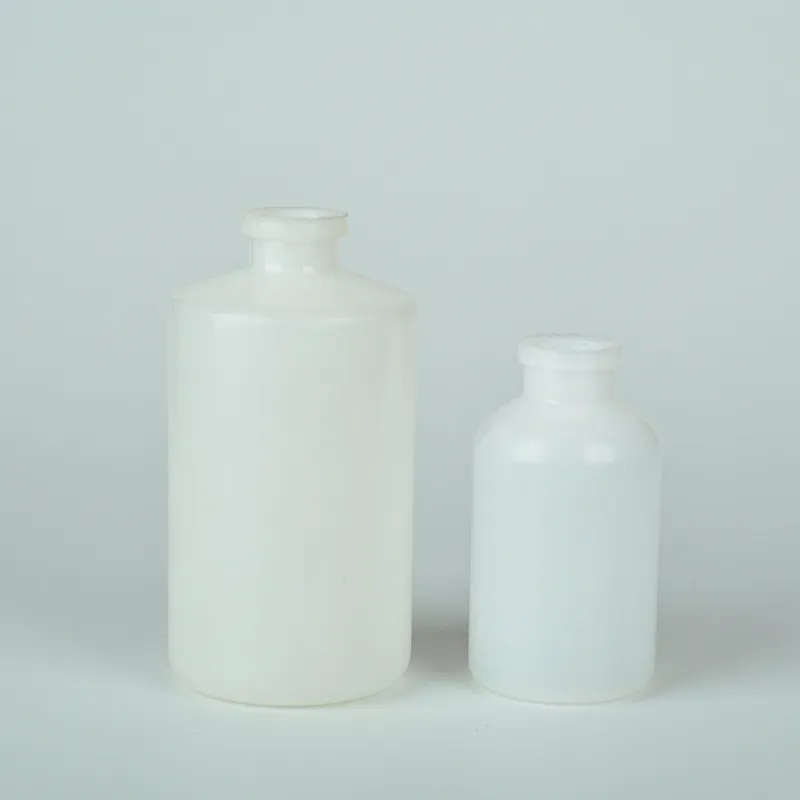reagent bottle types
Understanding Reagent Bottle Types A Comprehensive Guide
In the world of chemistry and laboratory work, the proper storage and handling of chemicals are paramount for safety and accuracy. One of the essential tools in every lab is the reagent bottle. This article aims to explore the various types of reagent bottles available, their specific uses, and the materials from which they are made.
1. Glass Reagent Bottles
Glass is one of the most commonly used materials for reagent bottles due to its chemical inertness, clarity, and resistance to thermal shock. Glass bottles typically come in several shapes and sizes, designed for specific applications.
- Wide-mouth Bottles These are ideal for solid reagents or liquids requiring easy access. The wider opening allows for easy pouring and the addition of tools like spatulas. - Narrow-mouth Bottles These are suitable for storing liquids that need to prevent contamination. The narrow neck minimizes the surface area exposed to air, which helps reduce the evaporation of volatile solvents.
- Amber Glass Bottles These bottles are used for light-sensitive substances, providing protection against UV light. The amber color filters out harmful wavelengths, thus preserving the integrity of the chemicals within.
2. Plastic Reagent Bottles
Plastic reagent bottles are an alternative to glass, offering advantages in weight, durability, and in some cases, cost. However, they may not be suitable for all substances due to their susceptibility to chemical reactions and permeation.
- Polyethylene Bottles Commonly used for storing aqueous solutions, polyethylene is resistant to many acids and bases. However, it may not be appropriate for organic solvents as they can cause degradation over time.
- Polypropylene Bottles These bottles are more heat-resistant and can withstand higher temperatures than polyethylene. They are also compatible with many chemicals, making them a versatile option for laboratory use.
reagent bottle types

- Fluoropolymer Bottles Known for their excellent chemical resistance, fluoropolymer bottles are ideal for storing strong acids and bases, organic solvents, and other aggressive chemicals. They are often used in specialized applications due to their high cost.
3. Specialized Reagent Bottles
Certain applications require specific types of reagent bottles designed for unique environments or substances.
- Vacuum Bottles These insulated glass bottles are designed to hold substances that require temperature control. They are commonly used for chemicals that must be kept cool or for reactions that are sensitive to temperature changes. - Gas Sampling Bottles These containers are designed to collect and store gas samples under specific conditions to maintain their purity and prevent contamination.
- Bottles with Dropper Tops Utilized for precise dispensing of liquids, these bottles have a built-in dropper mechanism, allowing for controlled delivery of small volumes, which is particularly useful in biochemical experiments.
4. Safety Considerations
When choosing a reagent bottle, safety should be the top priority. Always ensure that the bottle material is compatible with the stored substance to prevent leaks or reactions. It is also vital to use appropriate labels, including hazard symbols, to avoid accidental misuse. Moreover, bottles should be stored in an organized manner, ideally within a designated chemical storage cabinet, away from direct sunlight and extreme temperatures.
Conclusion
Reagent bottles play a crucial role in laboratory environments, serving as the primary means of storing and handling chemicals. Understanding the different types of reagent bottles—glass versus plastic, and specialized options—can significantly enhance laboratory safety and efficiency. By selecting the correct bottle for your needs, you can ensure that your experiments are not only accurate but also safe. Always adhere to safety guidelines and best practices when working with any reagents to foster a secure laboratory atmosphere.
-
Aesthetic Makeup Spray Bottles | Fine Mist Empty RefillableNewsAug.19,2025
-
White Plastic Veterinary Vaccine Vials | Lab Liquid BottlesNewsAug.18,2025
-
Plastic Medicine Liquid Bottle: Secure Flip Top Drug VialsNewsAug.17,2025
-
Durable 250ml Blue Plastic Vaccine Vial for Lab & Vet UseNewsAug.16,2025
-
Sterile Virus Sample Tubes: Secure & Reliable Specimen CollectionNewsAug.15,2025
-
White 250ml Plastic Vaccine Vial for Lab & Vet MedicineNewsAug.14,2025
























